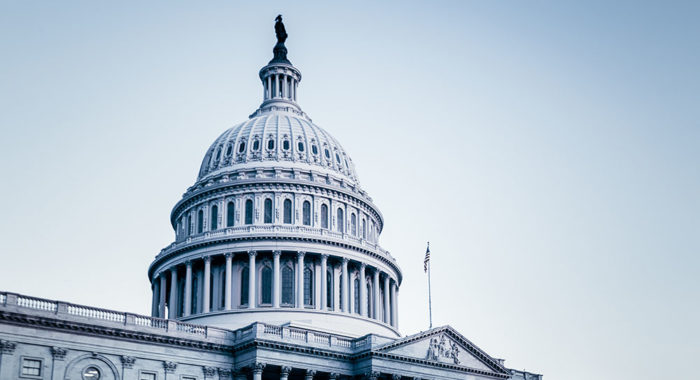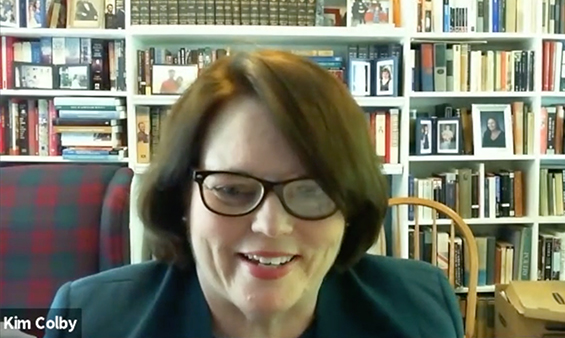A large group of evangelical leaders, including NAE President Leith Anderson, sent a letter to President Obama objecting a mandate under the health care reform law that would require employers to offer insurance coverage for contraception to employees, including treatments that some equate with abortion. The signers also expressed concern that the “religious employer” exemption is too narrow to protect most faith-based organizations.
Dear Mr. President:
We write to express our deep concern about the contraceptives mandate in the health insurance regulations, and about the “religious employer” exemption that is so narrow that it does not protect most faith-based organizations.
We write to you specifically as organizations and leaders that are not part of the Catholic community. We write not in opposition to Catholic leaders and organizations; rather, we write in solidarity, but separately — to stress that religious organizations and leaders of other faiths are also deeply troubled by and opposed to the mandate and the narrow exemption.
Most press reports on the controversy concerning the contraceptives mandate portray the opposition as coming only from the Catholic Church and Catholic organizations. But this is wrong. It is emphatically not only Catholics who deeply object to the requirement that health plans they purchase must provide coverage of contraceptives that include some that are abortifacients. It is not only Catholics who object to the narrow exemption that protects only seminaries and a few churches, but not churches with a social outreach and other faith-based organizations that serve the poor and needy broadly providing help that goes beyond worship and prayer.
The faith-based organizations and religious traditions represented by the undersigned leaders do not all share the same convictions about the moral acceptability of the mandated services. But we are all deeply concerned about the narrow exemption, including proposals made to expand it while still leaving unprotected many faith-based organizations. Many of us previously signed a letter, dated August 26, 2011, to Joshua DuBois, head of the White House Office of Faith-Based and Neighborhood Partnerships, asking his help in persuading your administration, if it maintains the contraceptives mandate, to replace the current “inaccurately narrow and practically inadequate definition of ‘religious employer’.” An organization does not cease to be a religious organization just because it serves the poor and needy in material ways and does not confine its help to prayer and religious teaching.
We reiterate our opposition to the narrow exemption. We wish to stress that we strongly object to a revised exemption that is only broadened enough to include faith-based organizations that are affiliated with a specific denomination. We understand that such a compromise has been proposed to your administration. The suggested compromise discriminates against the many religions that organize themselves in ways other than by being centered on a denomination. Some faith-based organizations have an interdenominational or ecumenical affiliation. Yet others are linked with houses of worship that are not denominational at all. And a significant number of faith-based organizations are not affiliated formally with any house of worship or denomination. Rather, they are, and are considered in Federal law to be, religious organizations because of their religious mission, their faith-shaped internal operations, and their presentation of themselves to the community as religious organizations.[1]
Mr. President, religious organizations beyond the Catholic community have deep moral objections to a requirement that their health insurance plans must cover abortifacients. Religious organizations beyond the Catholic community object to the current narrow exemption, which puts them outside the definition of “religious employers.” And religious organizations beyond the Catholic community object to any revision of the exemption that would limit it to churches and denominationally affiliated organizations.
We believe that the Federal government is obligated by the First Amendment to accommodate the religious convictions of faith-based organizations of all kinds, Catholic and non-Catholic. We respectfully ask that your administration, should it maintain the current contraceptives mandate, devise an exemption for religious employers that accurately defines such employers and exempts them from being required to offer to their employees (and students, if they are among America’s many religious colleges and universities) health services to which they have deep religious objections.
Thank you.
Sincerely,
Leith Anderson, President, National Association of Evangelicals
Wayne L Gordon, President, Christian Community Development Association
John Ashmen, President, Association of Gospel Rescue Missions
Jim Liske, CEO, Prison Fellowship Ministries
Fred L. Potter, Esq., Executive Director and CEO, Christian Legal Society
Colby M. May, Esq., Director & Senior Counsel, Washington Office, American Center for Law & Justice
Dr. Richard Land, President, The Ethics and Religious Liberty Commission, Southern Baptist Convention
Tom Minnery, Senior Vice President, Focus on the Family
Stanley Carlson-Thies, President, Institutional Religious Freedom Alliance
Nathan Diament, Executive Director for Public Policy, Union of Orthodox Jewish Congregations of America
Rabbi Abba Cohen, Vice President for Federal Affairs and Washington Director, Agudath Israel of America
Dr. Gary M. Benedict, President, The Christian and Missionary Alliance
Dr. George O. Wood, General Superintendent, The General Council of the Assemblies of God
Stephanie Summers, Chief Executive Officer, Center for Public Justice
Ron Sider, President, Evangelicals for Social Action
Rev. Samuel Rodriguez, President, National Hispanic Christian Leadership Conference/ Hispanic Evangelical Association
John Holmes, Ed.D., Director of Government Affairs, Association of Christian Schools International
Dr. Keith Wiebe, President, American Association of Christian Schools
Dr. Jo Anne Lyon, Chair, Board of General Superintendents, The Wesleyan Church
Everett Piper, PhD, President, Oklahoma Wesleyan University
Shirley A. Mullen, President, Houghton College
Henry Smith, President, Indiana Wesleyan University
Dr. Todd S. Voss, President, Southern Wesleyan University
Tom Armiger, CEO, World Hope International
Andrew Sears, Executive Director, TechMission
Jay Van Groningen, Executive Director, Communities First Association
Karen Woods, Cornerstone Community Resources
Bruce Miller, CEO, Lawndale Christian Health Center
Rev. Steven E. Boes, President and National Executive Director, Boys Town
Paul R. Corts, President, Council for Christian Colleges & Universities
Robert C. Andringa, Ph.D., President Emeritus, Council for Christian Colleges & Universities
Robert H. Spence, President, Evangel University, The National Assemblies of God University of Arts, Sciences & Professions, Springfield, Missouri
Carl E. Zylstra, President, Dordt College
Gordon L. Anderson, Ph.D., President, North Central University
Dr. Todd J. Williams, President, Philadelphia Biblical University
Charles H. Webb, PhD, President, Spring Arbor University
Dr. Lee G. Royce, President, Mississippi College
Jerry B. Cain, President, Judson University
Rick Mann, PhD, President, Crown College
William L. Armstrong, President, Colorado Christian University
Samuel W. “Dub” Oliver, Ph.D., President, East Texas Baptist University
Dr. John C. Bowling, President, Olivet Nazarene University
Joseph Castleberry, Ed.D., President, Northwest University
Dr. Charles W. Pollard, President, John Brown University
Dr. Barbara Bellefeuille, Provost, Toccoa Falls College
Dr. Roger Parrott, President, Belhaven University
Dr John Jackson, President, William Jessup University
Dan Boone, President, Trevecca Nazarene University
Mike E. O’Neal, President, Oklahoma Christian University
Paul J. Maurer, President, Sterling College
James H Barnes III, President, Bethel University
Bob Brower, President, Point Loma Nazarene University
David W. Olive, President, Bluefield College
Jules Glanzer, President, Tabor College
Dr. Loren E. Swartzendruber, President, Eastern Mennonite University
Dr. David C. Alexander, President, Northwest Nazarene University
William M. B. Fleming, Jr., Interim President, Palm Beach Atlantic University
Eric Strattan, lead pastor, Bridge Bible Church, Muskegon, MI
Gail Kraft, Executive Director, Love INC of Muskegon
Case Hoogendoorn, Senior Partner, Hoogendoorn & Talbot LLP, Chicago
Stephen V. Monsma, Senior Research Fellow, The Henry Institute, Calvin College
cc: Joshua DuBois, Executive Director, White House Office of Faith-Based and Neighborhood Enterprises
Secretary Kathleen Sebelius, Department of Health and Human Services
[1] See, e.g., LeBoon v. Lancaster Jewish Community Center, 503 F.3d 217 (3rd Cir. 2007), addressing what is a “religious organization” for purposes of the religious employer exemption in sec. 702(a) of Title VII of the Civil Rights Act of 1964. Mindful of the First Amendment implications, the Court In Leboon sets down a nine-factor test for determining if an organization is religious. Ibid. at 226. The non-profit religious association in LeBoon is found by the Court to be a religious organization even though it is not formally linked to synagogues in the same community. Ibid. 227.



 View All Updates
View All Updates 























